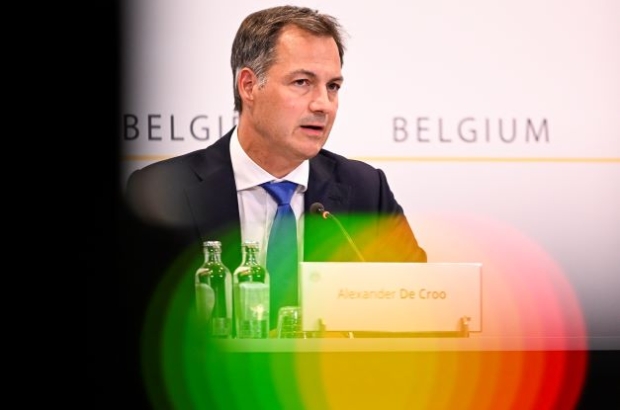- Daily & Weekly newsletters
- Buy & download The Bulletin
- Comment on our articles
Energy committee announces measures to combat crisis
Belgium’s consultative committee has announced new measures to combat the energy crisis following its meeting on Wednesday, reports RTBF.
Sharp rises in the prices of gas and electricity have left Belgian households struggling with steep bills. The committee met in order to discuss potential alleviating measures.
“There is no miracle solution,” prime minister Alexander De Croo announced at the press conference following the consultation committee. In terms of supply, Belgium’s reserves should allow the country to get through winter without issue, he added.
But when it comes to the sky-high prices, the committee said, “the market is no longer functioning.” It’s calling on the EU to take measures quickly “to protect its citizens and businesses”.
The committee said that current wholesale gas and electricity prices were “so irrationally high that intervention in the market is necessary,” pointing out that gas is traded in Belgium at €300/MWh, but around €150/MWH in Asia and €30/MWH in America.
For its part, Belgium is extending support measures already in force, such as the extension of the social tariff, the reduction of excise duties on fuel at the pump, the 6% VAT on gas and electricity and the financial compensation measure for fuel oil, until 31 March 2023.
The committee is also calling for a reduction in energy consumption, starting with public authorities, with the aim of setting an example. Banks will be asked to grant deferrals on mortgage repayments as energy bills begin to rival housing costs in their size.
Further consultation is planned with the sectors whose businesses are most affected by soaring prices, and promotion of investments in sustainable solutions will continue.
Finally, the Belgian government says it plans to “skim off” some of the excess profits currently being reaped by energy companies amid the price hikes.
Belgium is already taxing the excess profits generated by four of its power stations to the tune of €750 to €838 million this year, which will be passed on to consumers.
Some measures remain contentious
But critics such as the French-speaking opposition parties say the new measures are lacking and vague, and not very “new” at all.
Raoul Hedebouw (PTB) was especially critical of the fact that no new taxes are being imposed on Engie Electrabel, despite their excess profits.
“The only new thing we learn is that they are betraying their promise (“no one will get rich”),” Hedebouw tweeted. “It's a disgrace.”
François De Smet (DéFI) summarised the committee meeting as only “symbolic” and lacking teeth.
“A mixture of old measures (social tariff, VAT) and letters of intent (we will work on over profits and with the banks and with the EU but we have nothing concrete for the moment, thank you),” De Smet said.
The conundrum continues concerning the planned phase-out of nuclear power in Belgium.
The government is asking whether or not the shutdown of the last two nuclear reactors can be postponed, but the energy providers have repeatedly emphasised that an extension isn’t so simple as “just pushing a button”.
The phase-out has been long planned with work already underway to close completely all nuclear power plants in the country, shifting the focus to renewables like wind and solar.
That phase-out itself was controversial, with critics saying it was prompted by overblown fears regarding the safety of nuclear power and that completely eliminating it as a source would jeopardise Belgium’s energy independence.
Regardless, De Croo emphasised that any actions taken by Belgium alone would be ineffective without broader European measures.
The Council of European Energy Ministers will meet next week.
Photo: Prime minister Alexander De Croo at press conference © Belga/Laurie Dieffembacq



















